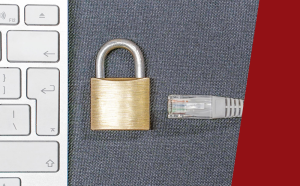
by Dan | Oct 16, 2020 | Advocacy
Citizens,
Have you had a chance to vote yet? If you haven’t, we encourage you to make a plan that meets your own health concerns and also takes into account the information you need to make informed decisions. Many citizens make one of the most important forms of expression, voting, with incomplete information. Ensure you have a plan, given virus restrictions that have impacted the mail system and normal polling stations. Vote early if you can. Check with organizations like Vote.org to get your state level information on whether early voting is allowed, whether drop boxes allow you to avoid sending ballots through the mail, polling locations and other details.
Are you a California voter, wondering about all of the different propositions on the ballot? Check out this LA Times video overview. It provides the various (12) propositions, pros and cons, along with whose for it and against it in about one minute or less per measure.
Voting in San Clemente? Check out FAV’s two different videos on the Candidate Forums co-sponsored with the Chamber of Commerce for the 2 Year seat and 4 Year seats. Learn about your candidates before casting your ballot.
If you have voted, check out some of FAV blogs that help you think about civic engagement beyond election time. Find our most recent one here and one on invitational communication here.
Citizenship is not a spectator sport!
Steve & the FAV Team

by Dan | Oct 14, 2020 | Uncategorized
 Voting is one of the most widely-recognized forms of civic participation, but it’s certainly not the only one. Civic engagement is typically defined as people coming together to socialize, advocate, converse, and make a difference in their communities, and it’s important for everyone to get involved in some meaningful way to sustain the community and help its members thrive.
Voting is one of the most widely-recognized forms of civic participation, but it’s certainly not the only one. Civic engagement is typically defined as people coming together to socialize, advocate, converse, and make a difference in their communities, and it’s important for everyone to get involved in some meaningful way to sustain the community and help its members thrive.
Since citizenship is not a spectator sport after all, here are some additional ways to boost your own civic participation and positively impact people around you as a result of your good works:
Engage in Community Conversations
Did you know something as simple as talking or listening can be considered forms of genuine civic engagement? By seeking out and joining conversations — whether they’re held virtually or in-person — you’re playing an active role in shaping your community’s future just by showing up.
You can discover what conversations, public hearings, dialogues and debates are happening in your community by checking your local government office’s website, browsing local events in the newspaper or on Nextdoor, or by visiting the websites of your favorite advocacy organizations to see if and when they’re hosting civic events (such as First Amendment Voice’s coffee talks and annual national symposium).
Volunteer for a Nonprofit Organization
Volunteering is arguably the second most well-known form of civic engagement (after voting). It also has several positive health benefits for participants, such as reduced feelings of isolation, lowered risk for cardiovascular disease, lowered rates of anxiety and depression, and reduced risk of developing cognitive impairments later in life.
Millions of hours of volunteer labor go into supporting nonprofits’ activities, programming and events every year. Without volunteers, many of these community-driven organizations would struggle to operate and serve those who need them most. If you want to get involved beyond the ballot box, contact nonprofits in your area to ask about volunteer opportunities. To become even more engaged as a citizen, consider joining a civics-centered nonprofit organization or donate money to a civic cause.
Participate in Community Clean-Up Events
Perhaps your schedule is too full to add a regular volunteering commitment. How about joining a trash pick-up event once or twice per month as a compromise? Many community organizations — some of them registered 501c3, others just informal groups of like-minded folks — host weekly or monthly clean-up events, particularly in areas with high public use such as parks, beaches, trails, etc.
You can easily find a community clean-up in your area by Googling your city or county’s name and “community clean-up” or “trash pick-up events.” You should be prepared to bring your own supplies (gloves, trash bag, hand sanitizer, etc.) and consider donating additional resources to the group you clean up with, if your financial circumstances allow for it.
Join a Club or Recreational Sports Team
Last but not least: did you know that participating in a hobby or sport with other people in your community can be considered a form of civic engagement, too? It’s true! When you join a recreational sports league or join a hobbyist club, you’re regularly interacting with fellow members of the community, which could also involve conversations about the community and social support for other members of the group.
As you can see, there is no shortage of ways to get involved as a citizen beyond simply voting for candidates and propositions each year. If you have additional strategies for becoming a more active member of your community, please share them with us in the comments!

by Dan | Sep 23, 2020 | Uncategorized
 Misinformation is all around us, and it’s continuing to play a massive, behind-the-scenes role in both our contemporary politics and social lives. As the director-general of the World Health Organization said at the Munich Security Conference in 2020, “We’re not just fighting an epidemic; we’re fighting an infodemic.”
Misinformation is all around us, and it’s continuing to play a massive, behind-the-scenes role in both our contemporary politics and social lives. As the director-general of the World Health Organization said at the Munich Security Conference in 2020, “We’re not just fighting an epidemic; we’re fighting an infodemic.”
Social media tends to be one of the biggest arenas where the spread of misinformation occurs. Indeed, the International Foundation for Electoral Systems published a report in 2019 that examined the various ways in which social media, disinformation and technological systems could influence electoral outcomes.
In the paper, the IFES refers to the issue of social media and disinformation as a “fundamental threat to the integrity of elections worldwide,” though the threat clearly goes beyond politics to include areas such as public health, natural disasters, and mass shootings, to name a few.
Since social media platforms are rife with misinformation and companies like Facebook have been dragging their feet on developing faster, more accurate systems for fact-checking and myth-busting, it’s important that citizens become empowered to independently combat the spread of misinformation within their own social networks.
Ask Yourself: Do the Facts Align with Reality?
Our March blog post offered some excellent pointers for detecting fake news online. This is an important first step in the process to effectively combat misinformation online. Identifying misinformation can be as simple as asking yourself if the facts align with reality and checking other sources to see if they’re reporting similar incidents.
Vox‘s guide to fighting fake news and conspiracy theories also recommends that you engage more critically with articles to uncover potential problem areas, such as a lack of external sources within the article, questionable credibility of the author (or no author at all) and the publisher’s reputation.
Once you’ve thoroughly vetted a source for an article shared by someone in your social network, you could respond by either offering alternative sources with greater credibility, respectfully asking the person who posted a questionable source to justify how or why it’s accurate or offer a brief, line-by-line explanation for how the story doesn’t match reality (your mileage may vary on this last one; in today’s hyper-polarized social media climate, it’s important proceed carefully when deciding whether to publicly call someone out for posting misinformation, regardless of their intentions).
Ask About the Source’s Accuracy
According to a study by Columbia University and the French National Institute in 2016, 59% of links on social media were never clicked prior to being shared. This is concerning on many levels, particularly when you consider the enormous power of persuasive headlines and catchy imagery to convince social media users to share content with potentially thousands of other people.
Obviously, reading the article before sharing it would be a good practice for your own social media habits, but what if you’re confronted with a friend or family member who is sharing links without reading them thoroughly beforehand?
A newer study published in Psychological Science in June 2020 found that “people share false claims about COVID-19 partly because they simply fail to think sufficiently about whether or not the content is accurate when deciding what to share.” In other words, by directly asking someone about a source’s accuracy, they are more likely to put in extra cognitive effort to discern whether the information is true or false, compared to when nobody confronts them on a source’s accuracy prior to sharing.
Leverage Credible Sources Against Disinformation
Another tool in your anti-misinformation arsenal is the plethora of high-quality, mostly-objective sources that exist to provide the most accurate information possible to their audiences. You can find out which sources are considered the most objective by viewing the Media Bias Chart from Ad Fontes Media. You might also want to share the chart with your own social network to support your followers’ digital literacy education.
In the future, we can probably expect to see more proactive fact-checking initiatives rolled out from social media companies. In the meantime, it’s up to everyday citizens like us to reach out to family members or friends who post blatantly untrue (or even subtly misinformed) information on social media to share the facts, limit the spread of disinformation within our own social circles, and promote greater media literacy for people of all ages.

by Dan | Sep 9, 2020 | Uncategorized
 COVID-19 has upended most of our lives in at least some significant ways, but that hasn’t stopped religious individuals and groups from continuing to provide support for the vulnerable folks who need it most. Since many religions involve some aspect of community service, this article explores how different individuals and organizations have supported the wider community so far during the course of the coronavirus pandemic:
COVID-19 has upended most of our lives in at least some significant ways, but that hasn’t stopped religious individuals and groups from continuing to provide support for the vulnerable folks who need it most. Since many religions involve some aspect of community service, this article explores how different individuals and organizations have supported the wider community so far during the course of the coronavirus pandemic:
Serving the Community
Hundreds, if not thousands, of religious groups have gone above and beyond to serve their communities during the COVID-19 outbreak. There are simply too many wonderful acts of kindness to mention all of them here, but some of the highlights have included:
Donating Masks
In March and April, it was incredibly challenging to get large quantities of masks made and distributed quickly in most places across the U.S. Fortunately, there were many religious groups and organizations who stepped up to the challenge by hosting their own mask donation drives and/or donating their own supplies of masks to members of the community.
Some notable stories that have come out in recent months include: Virginia Beach’s Rock Church donating 4,000 N-95 masks to healthcare workers, Fayetteville’s Manna Church donating 7,000 N-95 masks to healthcare workers after discovering an extra supply in their disaster relief storage, and members of Gateway Community Church in Merced, California refurbishing nearly 8,000 expired N-95 face masks — donated by the UCSF Medical Center — and delivering masks to protect vulnerable homeless people in the area.
In Indianapolis, Indiana, a couple of technology entrepreneurs partnered with over a dozen local churches to raised enough money for over 200,000 N-95 masks to donate to local healthcare workers. These are just some of the countless acts of extraordinary compassion and community service we’ve witnessed from various religious communities in the U.S. since the pandemic began, and many groups and institutions continue supporting their communities by making and donating masks to those who need PPE the most.
Join Us for the Religious Freedom Panel on September 17
Our Constitution Day Symposium webinar series are coming up and on September 17 at 11:00am EST, First Amendment Voice is hosting a Religious Freedom Panel that is freely accessible to members and non-members alike. Mark your calendars now and visit our website for more updates as the date comes closer! https://us02web.zoom.us/webinar/register/WN_FzSWibEvSU2eWHN_j9aCpA

by Dan | Aug 26, 2020 | Uncategorized
 Have you heard of the Open Technology Fund (OTF)? It’s a U.S.-based organization promoting Internet freedom around the world by offering resources that mitigate authoritarian regimes’ attempts to censor the Internet and unethically and/or unlawfully surveil people online.
Have you heard of the Open Technology Fund (OTF)? It’s a U.S.-based organization promoting Internet freedom around the world by offering resources that mitigate authoritarian regimes’ attempts to censor the Internet and unethically and/or unlawfully surveil people online.
The OTF impacts as many as 2 billion people worldwide, but it recently had to pause most of its projects and programs (49 out of 60) when $20 million of its Congressionally-approved and allocated funding was unexpectedly held back.
While this organization is primarily focused on supporting pro-democracy initiatives and journalist protections in countries beyond the U.S., the recent OTF controversy provides an excellent opportunity to learn more about the U.S. federal government’s capacity for funding and influencing global media projects:
What’s Going on with the Open Technology Fund?
The U.S. Agency for Global Media (USAGM) is designed to promote and support U.S. interests abroad through various media efforts such as training journalists and creating and distributing high-quality media content through Voice of America.
The Open Technology Fund is related to the USAGM because it receives grant funding from the agency, but controversy erupted in late July when President Trump withheld $20 million in Congress-approved funds from the OTF. This news came shortly after CEO Michael Pack took control of the USAGM and attempted to replace several USAGM and OTF leaders with his own appointees (a decision that was later blocked by the U.S. Court of Appeals).
In addition to personnel replacement concerns, Axios reported that the USAGM deputy chief of staff Diane Cullo misled the bipartisan House Foreign Affairs Committee by claiming $1.6 million was transferred to OTF in July. OTF officials had reportedly not received any of their allocated funding for July or August, and the July funds didn’t appear in OTF’s accounts until August 19 – six days after Cullo told the House Foreign Affairs Committee that OTF had already received their money in back in July.
The discrepancies between OTF reports and USAGM statements to both media and bipartisan Congressional committees are arguably cause for concern, especially in wake of OTF’s ongoing inability to support nearly 80% of their programming.
Why is the OTF Important for Internet Freedom?
Those of us living in the U.S. are fortunate to have freedom of expression inscribed within our Constitution, access to a relatively free and open Internet, and countless high-quality, ethical journalists to keep the public informed. However, in some other countries, journalists work alongside the government as little more than propaganda pushers, and the Internet can be swiftly censored or shut down altogether if people are circulating information deemed unfavorable or dangerous by those with political power.
The OTF is critical for supporting the development and dissemination of tools that help individuals in other countries circumvent Internet blocking, as well as researching and developing solutions for enhancing online privacy, cybersecurity initiatives, and other anti-censorship efforts.
If the OTF does not receive the funds that Congress has already allocated to the group, then many of these valuable programs will be paused indefinitely. This could hinder U.S. interests when it comes to supporting democracy, Internet freedom of expression, and non-state journalists, which means more should be done to protect First Amendment-related organizations’ access to approved funding to ensure their efforts may continue uninterrupted and without unnecessary delays.
Join Us for Our First Amendment Freedoms & Technology Panel on Sept. 16
Have you marked your calendars for our upcoming symposium webinar series going on between September 14-17? On September 16 at 2:45pm EST (11:45am PST), we’re hosting an exciting webinar featuring the CEO of Maestro Games Yael Swerdlow as the moderator and former FBI Chair Kenneth Cassine, former COO of Change.org Jen Dulski, and bestselling author and podcaster Abel James as the panel speakers.
Check out this link: https://www.eventbrite.com/e/first-amendment-voice-national-symposium-tickets-114132639798










